Audience: Secondary educators

Westwood High School: Spotlight on the Schedule
At Westwood High School in Mesa, Ariz., educator teams guide the learning of 9th- and 10th-grade students. For the 2024–2025 academic year, Westwood transitioned from a traditional six-period schedule to an eight-period block schedule. This resource explores their innovative approach to restructuring instructional time.

Westwood High School: School Profile
Westwood High School in Mesa, Ariz., serves approximately 3,200 students in grades 9–12. This resource explores Westwood’s implementation of the Next Education Workforce model, highlighting their teaming structures and their approaches to innovation, coaching and schedule.
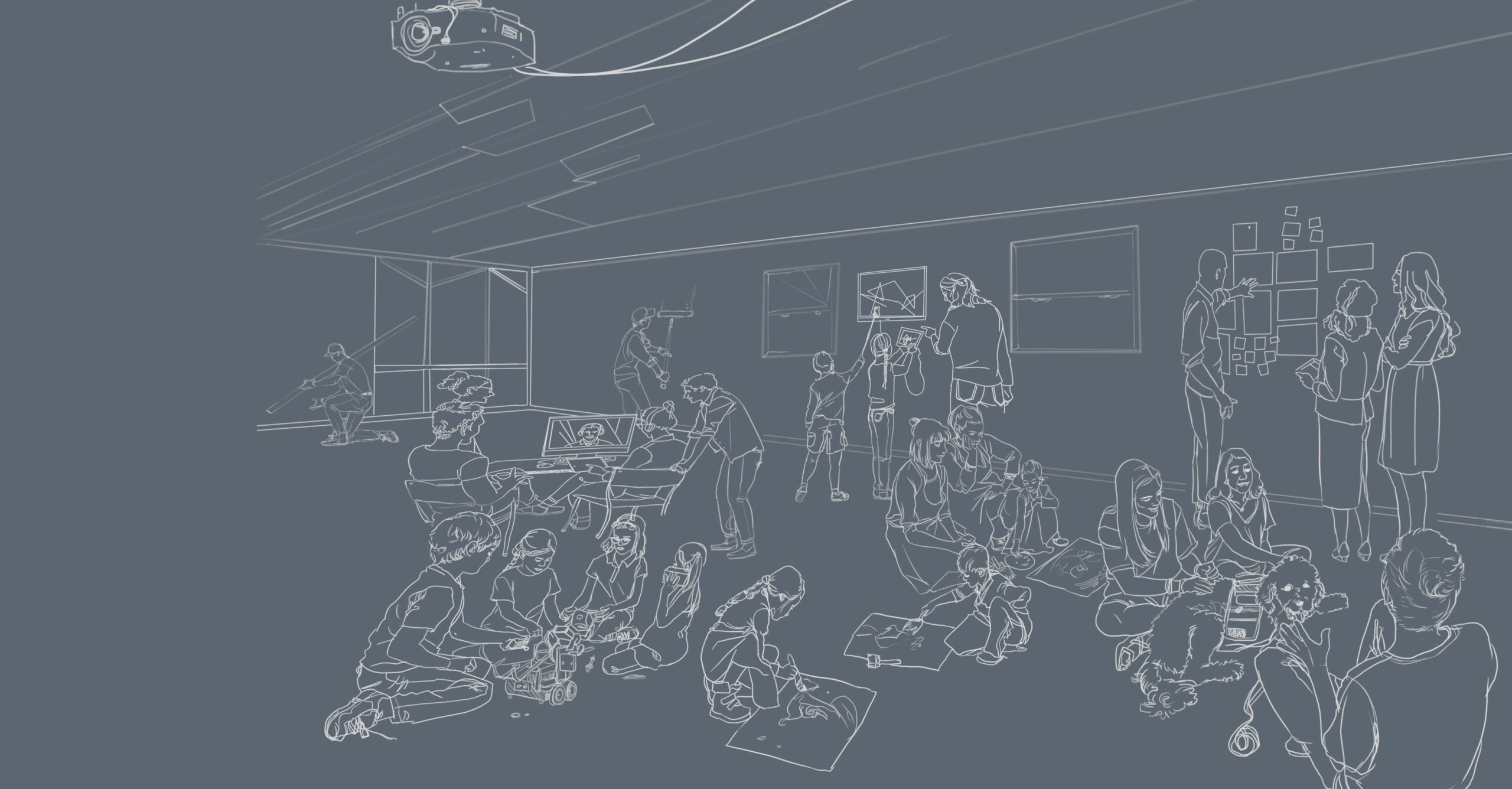
Seminar-style teaching
This guide offers a step-by-step collaborative planning process designed to promote deeper and more personalized learning. Explore how Westwood High School educators implement differentiated roles, team-based support and flexible schedules to bring their vision of seminar learning to life.
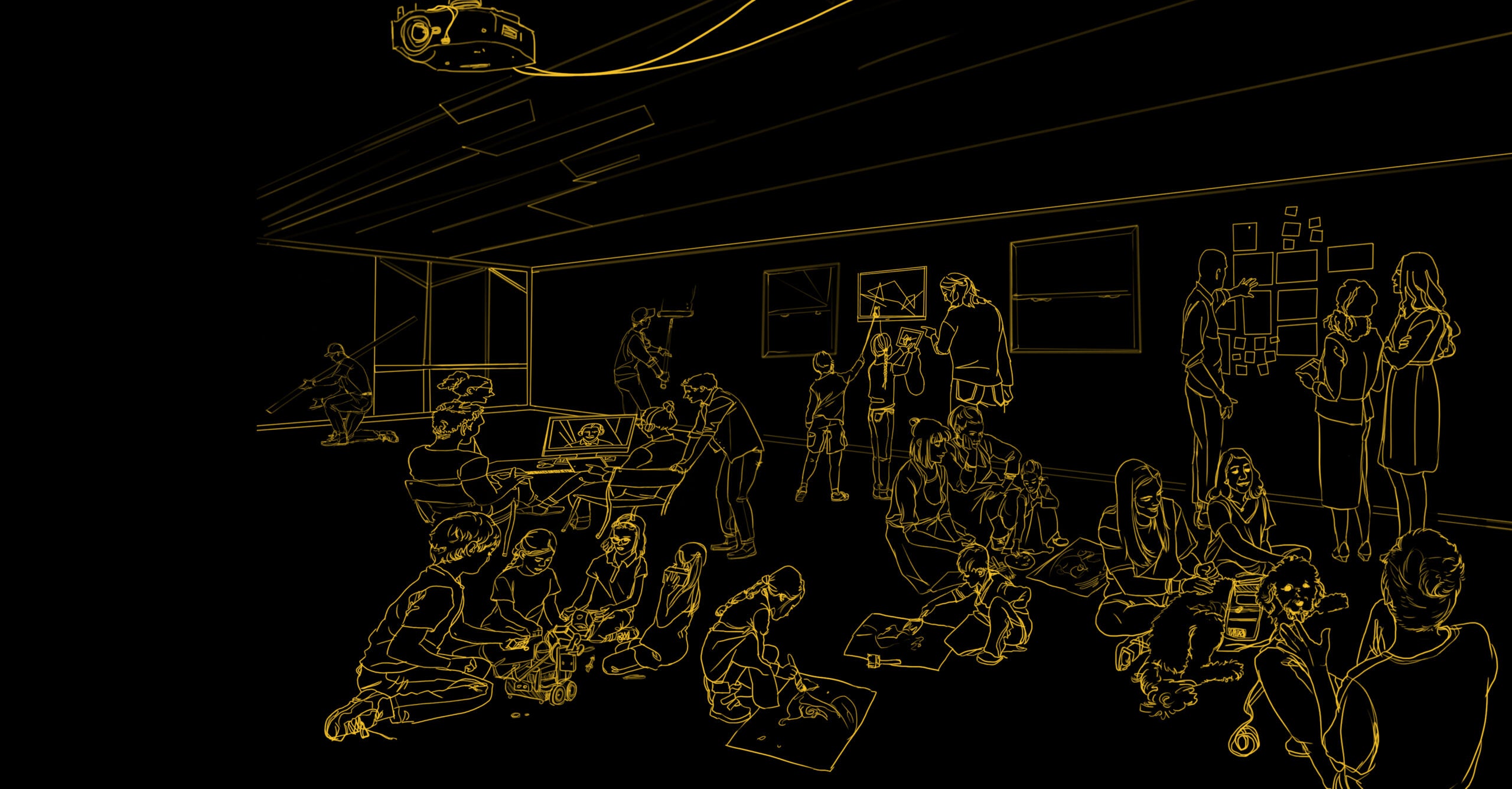
Mountain View High School: School Profile
At Mountain View High School, each core team of educators collectively supports 90–120 students. Core teams are composed of three to four educators, each of whom specializes in one or two content areas.

Mountain View High School: Spotlight on the Schedule
All 9th-grade teachers at Mountain View High School, located in Mesa, Ariz., are members of educator teams. Each core team of educators serves 90–120 students and includes three to four content area specialists. Explore how they organize their time with students.

Dynamic student groupings at Mountain View High School
Explore how 100 ninth grade students are supported by a core educator team that includes a Spanish teacher, biology teacher and a dual-certified English and world history teacher.

Dynamic student groupings at Skyline High School
Explore some of the ways an educator team grouped and regrouped 100 students over the course of a single day.
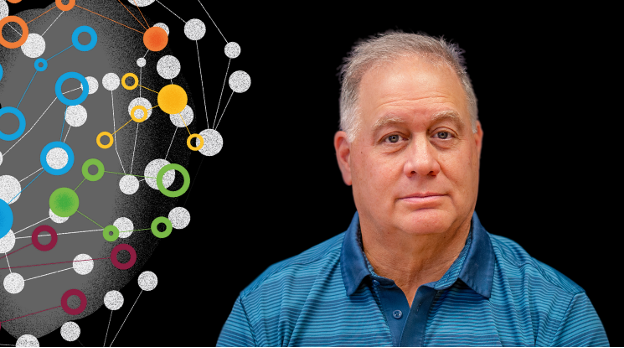
Extended cut: A perspective on strategic school staffing from national union leadership
How can collective bargaining promote strategic school staffing? In this extended cut, Rob Weil of the American Federation of Teachers joins Brent Maddin of the Next Education Workforce™ to discuss this and other issues educators face in the one teacher, one classroom model.

An examination of teacher engagement in Next Education Workforce models
This study leverages longitudinal administrative data on teacher leave within a single district. We use a two-way fixed effect design to examine the relationship between Next Education Workforce model participation and teacher engagement.

Results from a follow-up survey of Next Education Workforce teachers
This survey explores how Next Education Workforce team teachers compare to their district colleagues not on a Next Education Workforce team regarding teacher self-efficacy, job satisfaction, teacher-student interaction, and career plans.

Creating shared and flexible learning spaces: A continuum for rethinking space
Space matters, but not having the money to invest in learning space design shouldn’t stop you from launching team-based models. This continuum is a tool to support decision-making for a phased approach for transforming learning spaces. We believe there is a continuum on which each team-based learning environment sits. Where it sits is usually a function of the level of investment the school or school system can make in shifting learning spaces in ways that have a positive impact on educators and students.
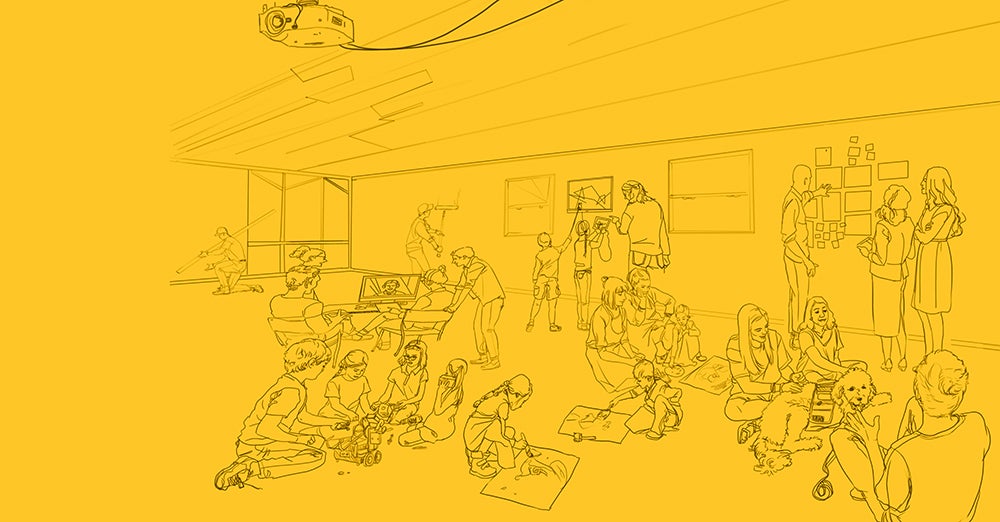
Curated external resources
We’ve proposed lists of resources on deeper learning, personalized learning, and deeper and personalized learning in a virtual setting. These lists, while not comprehensive, have been curated to help educators target their searches.
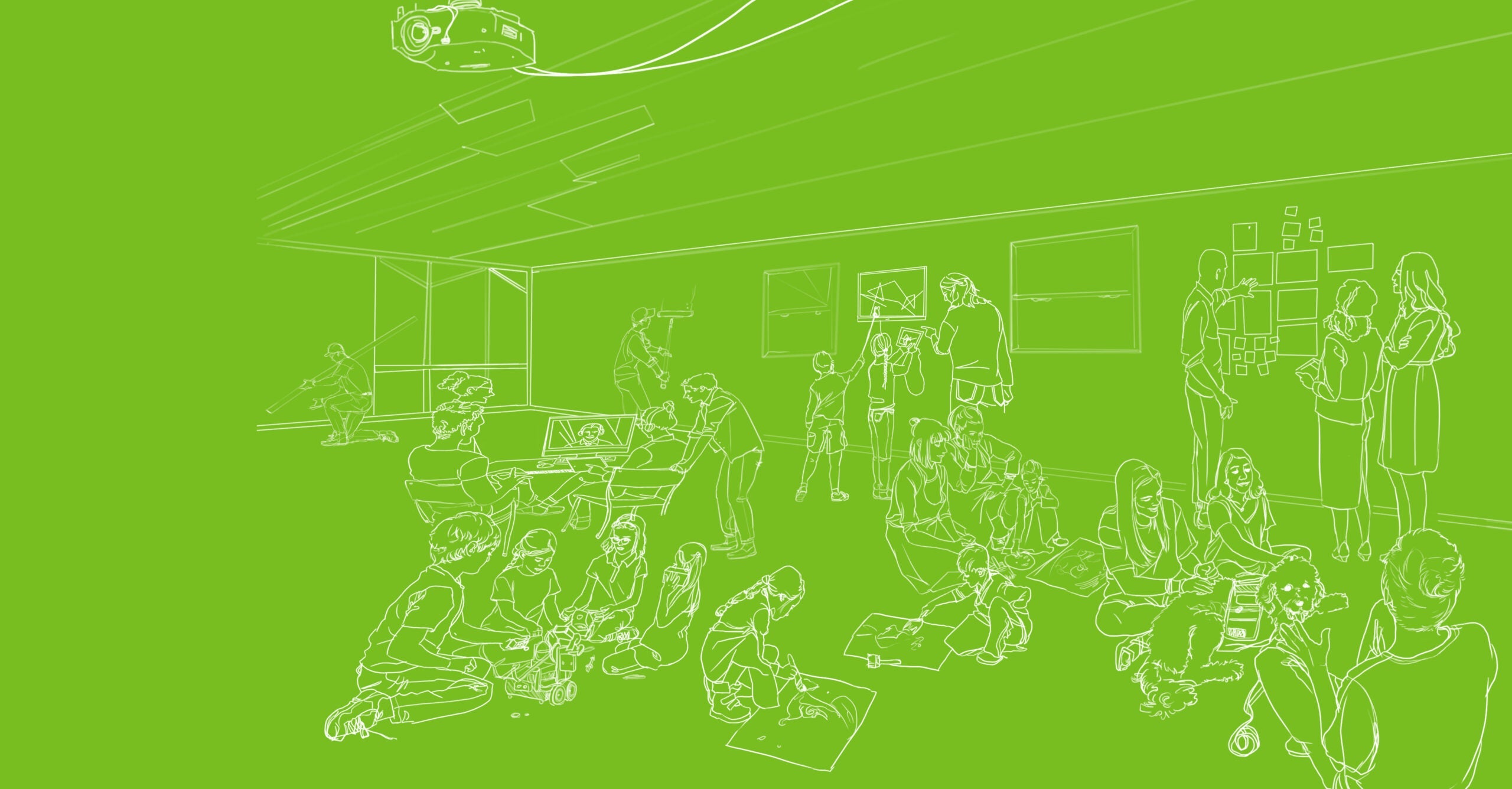
Gaining a deeper understanding of your team members
These two activities invite team members to gain a deeper understanding of one another, including backgrounds and context for teamwork.
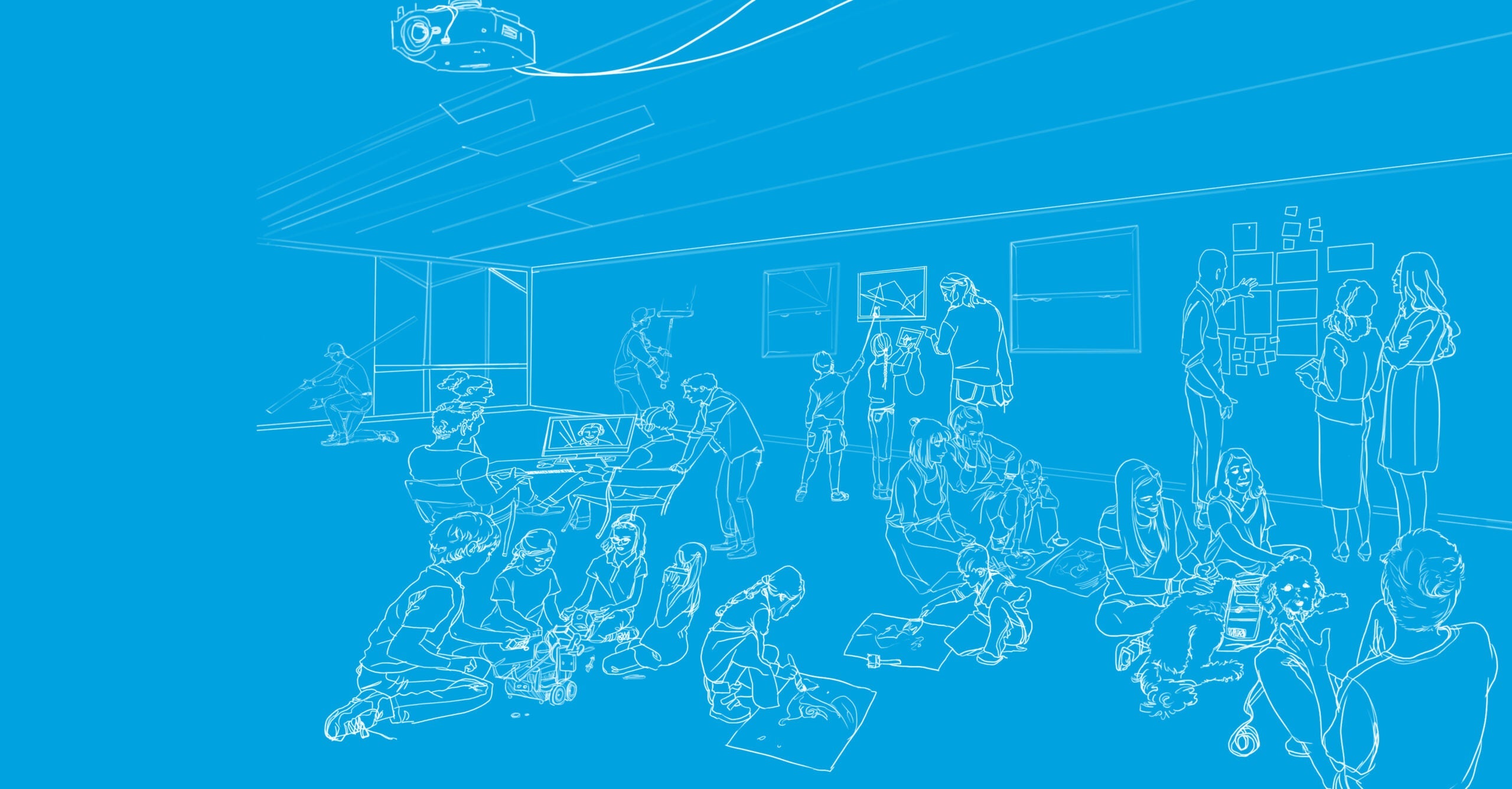
Relationships come first
Learn how MLFC works with schools and other partners to 1) provide all students with deeper and personalized learning by building teams of educators with distributed expertise and 2) empower educators by developing new opportunities for role-based specialization and advancement.

Community Circles
When a child enrolls at Jefferson Elementary, they are assigned to a community circle composed of at least one child from each grade level. Explore this resource to learn more about the program and its impact on learning for students and for staff.

Literacy Accelerators
Two to four times per week, Skyline High School teacher academy students assume the role of community educator at their feeder school, Stevenson Elementary.

Medical Innovations
To gain an understanding of a variety of medical conditions and how they affect the people who face them, the 4–6 grade teaching team assembled ten community educators to participate in interviews with their students.

Dynamic student groupings at Paulo Freire
How Paulo Freire’s team of educators grouped and regrouped 68 middle school students over the course of a day.
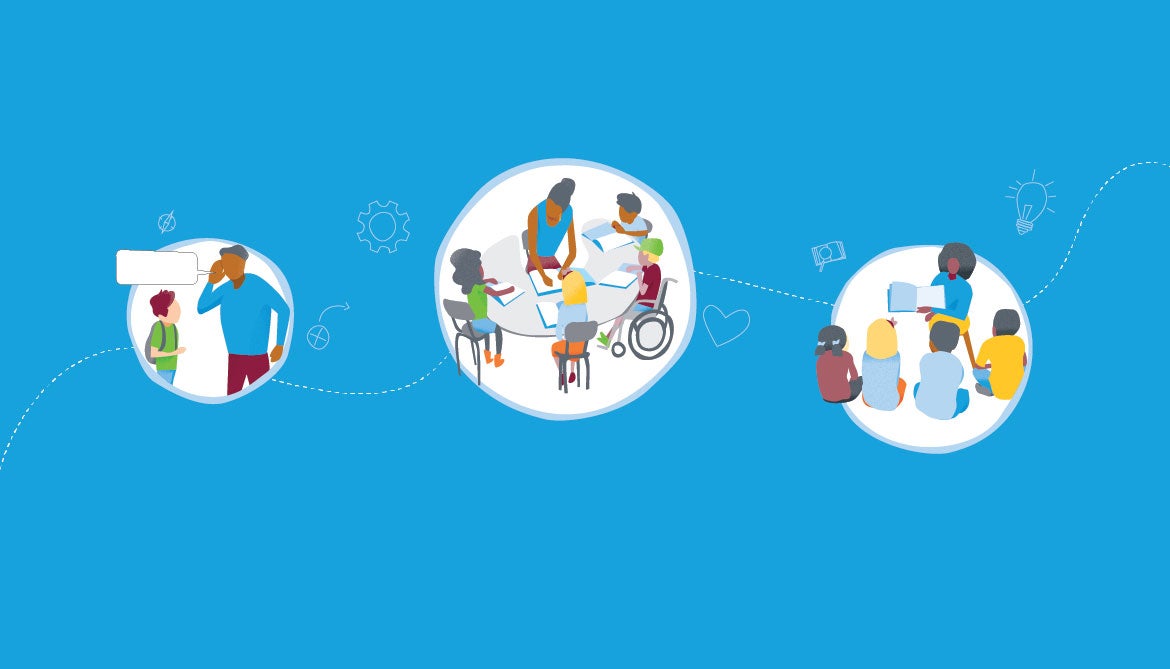
5 tips for community educators preparing to enter the classroom and other learning spaces
These five tips will help community educators prepare and feel ready to enter any learning space, have a successful experience and make lasting, meaningful connections with learners. This resource expands on helpful tips around translating industry expertise, managing the learning space, working with students during the visit and more.

Results from the Year One Survey of Next Education Workforce Teachers
Educators in Next Education Workforce models are more satisfied, collaborate more and believe they have better teacher-student interactions than educators in traditional staffing models.

Using collaborative tools to implement data-driven flexible grouping
Explore how educator teams use cloud-based spreadsheets to fluidly and transparently group students by interest and skill.

5 tips for creating an inclusive secondary school learning model
Leverage special educators’ knowledge and skills to increase the effectiveness of educator teams.

Self-organized learning environments
Learn to implement self-organized learning environments, an instructional approach in which students explore complex questions in self-organized peer groups.
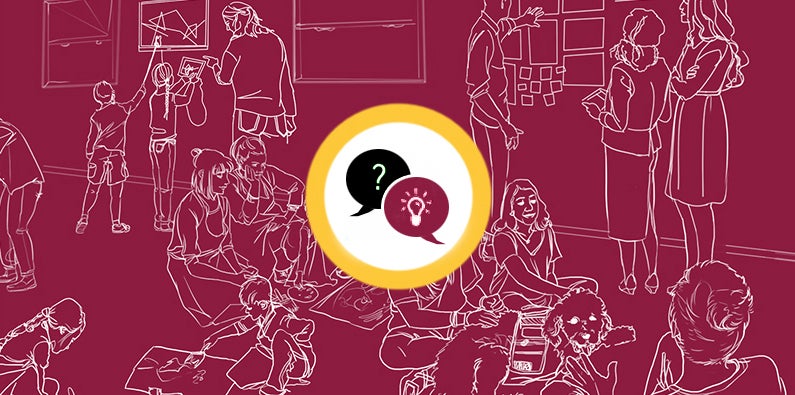
Video: What is the Next Education Workforce?
How the Next Education Workforce initiative at Arizona State University’s Mary Lou Fulton College for Teaching and Learning Innovation works with schools and other partners.

Smith Junior High: Spotlight on the schedule
Smith Junior High is located in Mesa, Arizona and serves about 900 students in grades 7-8. Each core educator team serves about 150 students and includes certified teachers with expertise in a specific content area one of whom serves as the lead teacher for the team. In this resource, you’ll view an example schedule at a glance, as well as three sample student schedules.

Smith Junior High: School profile
Smith Junior High is located in Mesa, Arizona, and serves about 900 students in grades 7-8. Each core educator team serves about 150 students and includes certified teachers with expertise in a specific content area, one of whom serves as the lead teacher for the team. In this resource, you’ll find out how they’re implementing a Next Education Workforce model.

Connecting with Community Educators
Community educators can be found simply by asking around your own social networks and community. However, there are also resources made specifically to locate and connect with industry experts who are ready to support your learning environment.

Mock Trial
Activating a lawyer for unit planning support is a great example of a community educator contributing to the distributed expertise of a team. Learn how.

Living Library
The Living Library brought more than 35 community educators — from stay-at-home parents to investment bankers — to connect with high school students struggling to see the importance of learning math.

Lead teacher role description
Lead Teachers are educators who guide the educator team in sharing responsibility for all elements of student support, instructional planning, and delivery; lead the team in maintaining high expectations for student learning; and ensure the team functions at a high level to serve all learners by strength and need. This description of the Lead Teacher role is intended to be customized based on the unique needs of each school district.

Distributed expertise staffing matrix
This protocol helps educators make strategic decisions around how to best leverage the distributed expertise of team members. Additionally, it can help to identify other educators who may need to join the team and in what capacities.

Interest-based student groupings
Interest-based student groupings are groupings driven by student voice and choice. This planning protocol is an opportunity for team members to explore ways to leverage your team of educators to provide student voice and choice within a lesson or across a unit. In it, you’ll identify a lesson or unit appropriate for interest-based student groupings, draft student choices and work together to plan team deployment.

Skills-based student groupings
Skills-based student groupings are groupings based on formative student learning data. This planning protocol is an opportunity for team members to explore how you might leverage your team of educators to differentiate instruction for learners. In it, you’ll identify the objective(s) of your choice, draft a check for understanding and work together to plan team deployment for skills-based student groupings.

Educational legacies: Reflecting on and sharing the personal connections you make between race, class and education
In this activity, you will reflect on the connections you make between race, class and education; share those connections with your team; and listen as team members share. This activity is an opportunity to gain an understanding of each other’s lived experiences and build empathy and trust.

Establishing norms for managing conflict
Through this activity, educator team members reflect on their preferences for managing conflict and work together to agree on norms for healthy conflict as a team.

Establishing communication and working styles norms
This activity offers team members an opportunity to reflect on and share what it takes for them to feel balanced, how they prefer to process information, what they need most from their team members and more. After reflecting and sharing, team members will work together to create norms for communication and working styles.

River of life
This activity invites team members to gain a deeper understanding of one another, including backgrounds and context for teamwork. In it, you will create a map that captures key life experiences and then share your map with your educator team.

Story of self
This activity invites team members to gain a deeper understanding of one another, including backgrounds and context for teamwork. In it, you will respond to questions about your background, education, hobbies and more, and then share responses with your team.

How teaming has impacted one lead teacher’s practice
Mountain View School kindergarten lead teacher Danielle Ashenbrener describes how a team-based approach has helped her to get to know her students better and to target student learning to meet individual students’ needs.

Changing the model: Building the Next Education Workforce
What’s normal in education is broken. In collaboration with school and community partners, Arizona State University’s Mary Lou Fulton College for Teaching and Learning Innovation is working to change that.

Reflecting on social identity: Examining and sharing about group belonging
In this activity, you will create and share with your educator team a visual representing your social identity. Social identity is the story others tell about you and where you fit into society or the groups to which you belong (e.g., your race, ethnicity, gender identity).

Reflecting on personal identity: Examining and sharing what makes you unique
In this activity, you will create and share with your educator team a visual representing your personal identity. Personal identity is the story you tell about yourself that creates your self-concept and makes you unique (e.g., your skills, your hobbies, adjectives that describe you).

Educator team constructivist listening protocol: Reflecting, releasing emotion and constructing new meaning
In this activity, you will engage in an adaptation of the National Equity Project’s constructivist listening protocol. Together, with one or more members of your educator team, you will practice deep listening and construct new meaning about your identity and your lived experiences.

Identifying your equity imperative: Naming what you stand for and why
In this activity, you will reflect on a possible definition of equity, identify your equity imperative and share with your educator team. An equity imperative is a call to action representing an urgent and deeply felt need to address inequity. An equity imperative empowers you to answer the question, “What do I stand for and why?”

Student-selected support
In an effort to shift the ownership of learning from educator to student, SPARK School at Kyrene de las Manitas has implemented a system for students to reflect on their learning and progress, identify the academic support they need and schedule time to meet with the appropriate educator(s). This resource guides educator teams through steps to implementing student-selected support.

10 Tips for planning team-based deeper learning
The educator team at Kyrene de las Manitas Innovation Academy co-plans project-based units that support deeper learning. The 10 tips appearing in this document are drawn from their approach to planning. To get started, consider how your team might implement these tips.

Community Educator Invitation and Project Overview Template
Community educators provide capacity and insight in service of deepening and personalizing student learning. They enrich learning environments by forging authentic relationships, sharing expertise and expanding networks. Use this template to guide your communication with community educators.

Team-based PBL unit planning template
Next Education Workforce team-based structures can strengthen the project-based learning instructional approach. This unit planning template takes educators through the steps of designing a PBL unit, while also planning for how to maximize distributed expertise.

Community educator asset map
An asset map is a visual way to identify resources within your community. The act of creating a map of expertise can help you discover connections you already have, organizations you’d love to know about, and talents and resources near your school or available virtually.

Six tips for engaging a community educator
Explore this resource to learn six tips for engaging a community educator in schools, community-based organizations and anywhere that learning happens.

Principled Innovation: Redesigning education
Principled Innovation emboldens us to be able to ask the question, “We can, but should we?” This video, created by MLFC’s Principled Innovation Team, introduces Next Education Workforce models and explores how their development is an example of principled innovation.

Riverview High School: Learning space layout
Riverview High School serves 90–120 students in grades 7–12. Many of these students have left their assigned district schools due to disciplinary reasons or are transitioning out of juvenile detention or residential treatment centers. In this resource, you’ll see the layout of their learning space.

Westwood High School’s Academy Teams: Learning space layout
Approximately 900 ninth grade students at Westwood High School in Mesa, Arizona are distributed across six Academy Teams. In this resource, you’ll see the layout of their learning space.

Costs and shifts calculator
In this Google Sheet, you’ll be able to describe your strategy, input the costs, make intentional shifts and see your choices summarized on a dashboard.

Financially sustainable staffing models
In this document, you’ll read about how two school leaders and one district-level leader make strategic shifts in funding and time to cover the costs of their new staffing models.

Quarterly team reflection protocol
This resource, created in collaboration with MLFC’s Principled Innovation Team, proposes a quarterly, one-hour protocol intended to help teams reflect together and build the “muscles” of empathy, awareness and resiliency. The protocol guides the team through sharing quarterly wins, reflecting on an intentional set of questions, debriefing and identifying next steps.

Co-creating school design principles
Design principles are four to seven ideas that align with the school’s mission and vision and act as a guiding light for the school-level team implementing change. This tool suggests steps a team might take to prepare for a design session on co-creating design principles, offers a protocol for facilitating the session and proposes next steps for taking design principles from draft form to final state.

The relationship between deeper and personalized learning and teams of educators with distributed expertise
Hear from MLFC Dean Carole Basile about the relationship between deeper and personalized learning and teams of educators with distributed expertise.

Implementation briefs: Teacher Preparation and The Next Education Workforce
This collection of implementation briefs is a companion piece to Teacher Preparation and the Next Education Workforce (Thompson et al., 2020) and goes deeper into several facets of the initial team-based models with teacher candidates, including: role descriptions, readiness conditions for district partners, financial models, and implications for teacher preparation.

Next Education Workforce Teams in All-Remote Environments
In this resource, you’ll find several recommendations for how all-remote teams might deploy their educators to best meet the needs of students.

Elements of the Next Education Workforce
There is no one-size-fits-all Next Education Workforce model. The diverse contexts, assets and needs of each school inform the design and implementation of each model. However, all Next Education Workforce models share several common elements. This document describes the Elements of the Next Education Workforce found across dozens of schools that have launched successful team-based models.

The critical importance of the Next Education Workforce
Hear from MLFC Dean Carole Basile about why Next Education Workforce models are critically important, especially today.

Personalized learning resources
Exploring a new topic can be exciting. We want to help make sure your exploration is productive, with targeted searches from reliable sources. This list, while not comprehensive, offers good resources for planning and implementing personalized learning.

Deeper learning resources
Exploring a new topic can be exciting. We want to help make sure your exploration is productive, with targeted searches from reliable sources. This list, while not comprehensive, offers good resources for planning and implementing deeper learning.

Levels of Student Autonomy
Levels of Student Autonomy is a simple system that supports student independence and personalized learning. The resource below explains how you might implement this system in your learning space.
Deeper and personalized learning resources for a virtual setting
This list, while not comprehensive, offers good resources for planning and implementing deeper and personalized learning for a virtual setting.
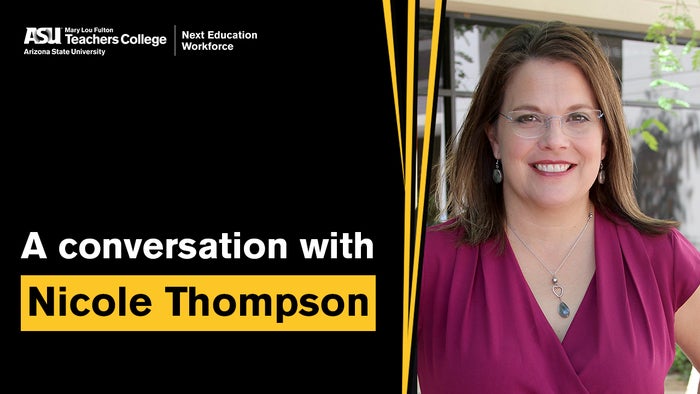
Dr. Nicole Thompson, Division Director of Teacher Preparation at Mary Lou Fulton College for Teaching and Learning Innovation
Brent Maddin talks with Dr. Nicole Thompson, Division Director of Teacher Preparation at Mary Lou Fulton College for Teaching and Learning Innovation, about equity, paid teacher candidate residency models, and Principled Innovation.
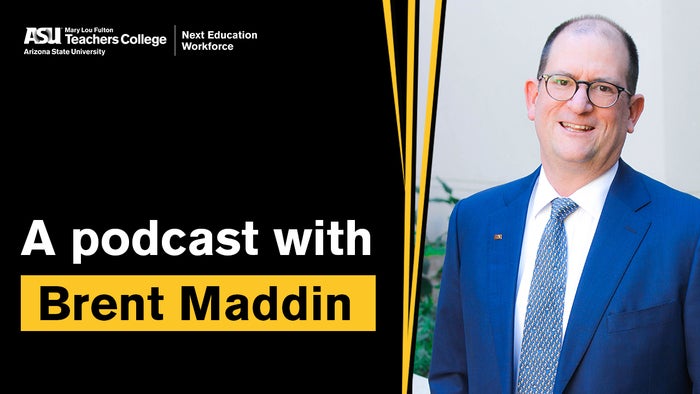
Brent Maddin: What is the Next Education Workforce?
Host Brent Maddin shares how MLFC is working with schools and other partners to 1) provide all students with deeper and personalized learning by building teams of educators with distributed expertise and 2) empower educators by developing new opportunities for role-based specialization and advancement.
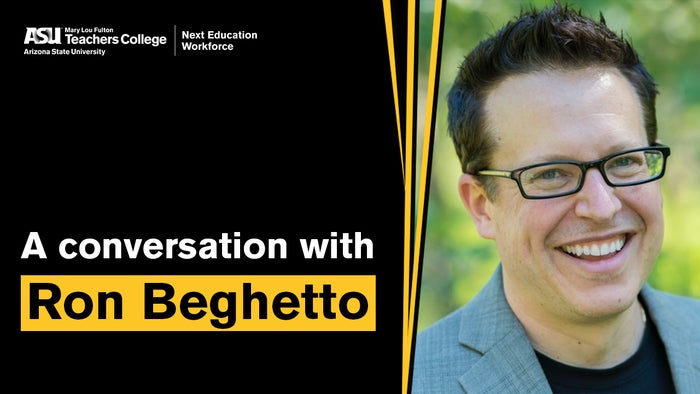
Ron Beghetto: Against technological macaroni art
Brent Maddin talks with Ron Beghetto, Professor and Pinnacle West Presidential Chair at ASU’s Mary Lou Fulton College for Teaching and Learning Innovation, about creativity, beautiful risks, and how we can improve education for all learners.

Building schedules for remote community educators in 5 steps
As schools build teams of educators with distributed expertise, and especially as they increase the number of community educators on their teams, scheduling becomes an increasingly complex task. Here, you’ll find five actionable steps for building schedules for remote community educators that are responsive to student and team needs and maximize community educators’ skills and talents.

Team routines and procedures
As we begin to adopt Next Education Workforce models, we inevitably find that some of the routines and procedures that worked in a one-teacher, one-classroom setting need to be adjusted. In this resource, you’ll find a list of some of the routines and procedures our partners redesigned as they’ve worked to implement Next Education Workforce models.

Teams and Distributed Expertise
Principal of Stevenson Elementary School Krista Adams shares how taking a teaming approach counters loneliness, empowers educators, and results in a better experience for both educators and students.

Hiring for Next Education Workforce models
Copper Trails principal Stacy E. Ellis shares how her criteria for hiring new educators changed as a result of teams adopting a Next Education Workforce model.

The impact of teaming on the role of the school leader
Krista Adams talks about how her role as principal of Stevenson Elementary School has shifted as her school has adopted a Next Education Workforce model.

Benefits of teaming: Educator retention, educator leadership opportunities and student learning
Justin Wing, Assistant Superintendent of Human Resources at Mesa Public Schools, shares three benefits of Next Education Workforce models — educator retention, educator leadership opportunities, and student learning.

Two recommendations for adopting a Next Education Workforce model
Justin Wing, Assistant Superintendent of Human Resources at Mesa Public Schools, shares two recommendations for those considering adopting Next Education Workforce models: changing your mindset and starting slowly.

Teaming challenges: Working together & managing conflict
In this clip, Clinical Assistant Professor and Senior Program Strategist Kelly Owen shares what she sees as the biggest challenge for educators interested in adopting a team-based model and makes recommendations for how teams might overcome that challenge.

Advice for educators interested in adopting a team-based approach
Clinical Assistant Professor and Senior Program Strategist Kelly Owen shares two pieces of advice for educators interested in adopting a team-based approach.

The value of distributed expertise
Professional Pathways Site Lead Valerie Roderick describes how educators can learn and grow from being members of teams that distribute their expertise. She also makes the connection between teaming and the issue of educator burnout: we can’t expect educators to be all things to all people at all times, and distributing expertise helps to make educators’ jobs manageable.

Principled Innovation®
Principled Innovation® is our ability to be able to ask the question, “We can, but should we?” In this clip, MLFC Dean Carole Basile describes the connection between Principled Innovation and Next Education Workforce models.

New support roles for educator teams in online and hybrid settings
Who are the groups of adults that might be leveraged to support students? Explore the specific roles those adults might play in the learning space.

Benefits of Teaming: Support, Complementary Strengths, and Multiple Mentors
In this clip, MLFC Resident Jordan Dick describes what she sees as the benefits of working on a team of educators with distributed expertise.

The budget and the Next Education Workforce
Justin Wing, Assistant Superintendent of Human Resources at Mesa Public Schools, shares two pieces of budgetary advice for districts considering moving to Next Education Workforce models.

The importance of embracing vulnerability in building a healthy team culture
Here, MLFC Resident Jordan Dick describes three benefits of teaming for Teacher Candidates placed in Next Education Workforce models.

The impact of the teaming model on teams with teacher candidates
Here, Kelly Owen, Clinical Assistant Professor and Senior Program Strategist, describes the impact of Next Education Workforce models on Lead Teachers, Teacher Candidates and students.

Building a Network of Community Educators
Community educators are talented adults from the community who bring additional capacity, insight and expertise to learning environments. Read on to learn about community educator roles; knowledge, skills and dispositions; policies and practices; and more

